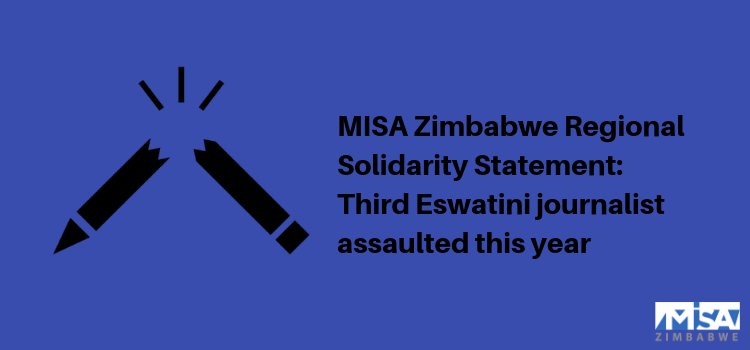This statement was oritginally published on zimbabwe.misa.org on Septemebr 5, 2018.
MISA Zimbabwe condemns the assault of Swaziland journalist Andile Nsibande by police officers and prison wardens on 30 August 2018 in what is becoming an increasingly worrying development involving state security agents.
Nsibande, a journalist with the Times of Swaziland was severely attacked as he covered protests over low salaries at Zheng Yong textile factory in Nhlangano.
Nsibande was attacked for taking pictures of armed police officers and prison wardens attacking and firing shots at the protesting workers who were mostly women. Police officers demanded that Nsibande delete the pictures he had taken, and then proceeded to beat up the defenceless journalist.
Nsibande was later taken to hospital where he received treatment.
This attack is the latest in a series of state-sponsored attacks against journalists in the kingdom of Eswatini, as Swaziland is now called. On 7 February 2018, a photojournalist with the Swazi Observer was attacked after he took pictures of a convoy of overcrowded vehicles transporting prison wardens.
Another photojournalist with the Sunday Observer was attacked on 13 July 2018 after he took pictures of government vehicles parked outside a deputy prime minister’s office. Police forced the photojournalist to delete pictures he had taken.
These attacks against journalists are a direct attack on the rights to free expression and press freedom as explicitly protected in Section 24 of Eswatini’s Constitution. Yet State security forces continue to attack journalists with impunity.
It is unfortunate that state security agents’ violence against journalists is not confined to Eswatini alone. In August this year, similar violations also took place in Tanzania and Zimbabwe.
A worrying regional trend
This worrying regional trend undermines the international commitments each of these three countries made to promote and uphold press freedoms and access to information.
For example, Article 19 of the Universal Declaration of Human Rights (UDHR) binds Eswatini, Tanzania, and Zimbabwe to the promotion of a free media, a key component of any democracy.
Article 9 of the African Charter on Human and People’s Rights which promotes the right to access information also applies to countries such as Eswatini. State security organs must, therefore, be used to promote access to information and not hinder it by censoring journalists.
MISA Zimbabwe position
MISA Zimbabwe appeals to the Southern African Development Community (SADC) to look into these continued state-sponsored violations against journalists. It is high time the regional body condemned the continued use of state security agents to violate fundamental rights such as the right to free expression and the right to access information.




